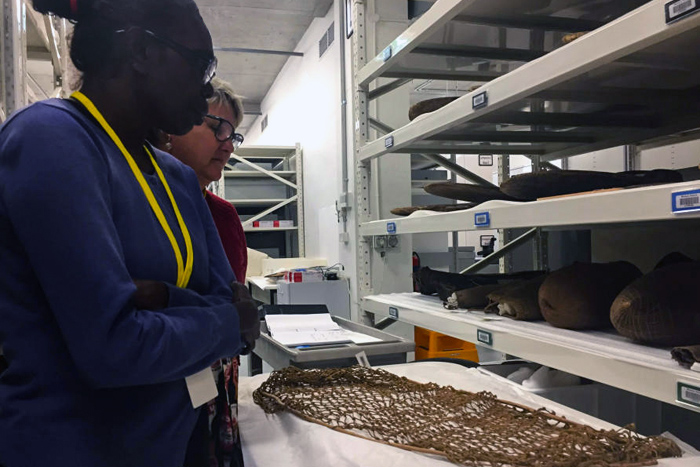Indigenous Storytelling and the Living Archive of Aboriginal Knowledge
Storytelling as an Indigenous method of enquiry that intervenes in and challenges the way ‘archives’ structure Indigenous histories and cultural heritage

The new librarian in Ngukurr, a remote community in South East Arnhem Land, and long-time editor of the local newspaper, Daphne Daniels, recently commented that ‘so much material about their community had been taken away’, but very little was available in a form that was easily accessible and understood by community members (pers comm. CI Senior 2018). This project addresses this issue of ‘archival return’ in ways that make sense to the community. In Australia and beyond, several successful projects have “Indigenized the archive” – turning the focus away from text-based repositories of information towards active, multimedia sites of creative knowledge production. This project offers an alternative ‘living archive,’ which includes Indigenous people as co-producers, foregrounds Indigenous knowledge and preserves and activates objects and the stories they elicit as a way of making sense of the ‘archives’, according to local and holistic ways of knowing.
Since colonisation, Indigenous people have been subjects of the Western archive, with their perspectives and stories represented (and misrepresented) in linear and static ways, often confined to the past or imagined to be imminently disappearing. Such approaches prioritise the ordering of things, rather than responding to the interconnectedness inherent in Indigenous world views. Indigenous Storytelling disrupts the ‘racialised-archive’, which historically locates Indigenous people in a ‘primitivist past’. Storytelling is an embodied practice and can be reflected through: oral transmission (often supporting traditional languages); artmaking; photography; performance; writing and other expressions of cultural production.
Storytelling is an expression of Indigenous sovereignty. Understanding Storytelling as both a method of knowledge-making and political claim-staking, makes the Indigenous archive alive, connected to the past, located in the present and determinedly future oriented. This project, therefore, explores Storytelling as an Indigenous method of enquiry that intervenes in and challenges the way ‘archives’ structure Indigenous histories and cultural heritage. Our research investigates how new developments in digital technologies might produce a model for an interactive, non-linear ‘living archive’ of Aboriginal culture/knowledge; and examine the material and institutional structures that allow Indigenous people to access, create and share stories that contribute to cultural wellbeing, self-determination, and powerful political assertions of unceded sovereignty over lands, bodies and cultural expressions. A decolonising approach, will frame a community-based and collaborative / participatory methodology, which is supportive of Indigenous Storytelling. This methodology shifts the power embedded in expertise from galleries, libraries, archives and museums to recognising Indigenous people as experts on their collections and records.
Project aims
The project aims to:
- Examine storytelling as an Indigenous research method for rethinking and co-creating a ‘living archive’ that is representative of interactive/interconnected, non-linear knowledge systems; and explore alternative forms, templates and recording methodologies, which favour approaches grounded in Indigenous ‘traditions’
- Empower communities to control collections through mechanisms, including digital tools and digital literacy, that support a process of dialogue and exchange between cultural institutions holding important collections of Aboriginal heritage and the ‘source community(ies)’ for these materials
- Undertake systematic global evaluation of galleries, libraries, archives and museums (GLAMs), learning from the processes of storytelling and cross-cultural exchange to inform future models that support community co-management of cultural collections in a living archive
Project details
Sponsors
Australian Research Council Discovery Indigenous Fellowship (2020 - Present)
Research partners
The University of Melbourne
Mount Holyoke College
The University of Newcastle
Ngukurr community
Museums Victoria
RMIT University, Vietnam
Project team
Associate Professor Jeanine Leane, Chief Investigator
Associate Professor Kate Senior, Chief Investigator
Associate Professor Richard Chenhall, Chief Investigator
Dr Rimi Khan, Chief Investigator
Associate Professor Gavan McCarthy, Chief Investigator
Dr Sabra Thorner, Partner Investigator
Dr Fran Edmonds, Senior Research Fellow